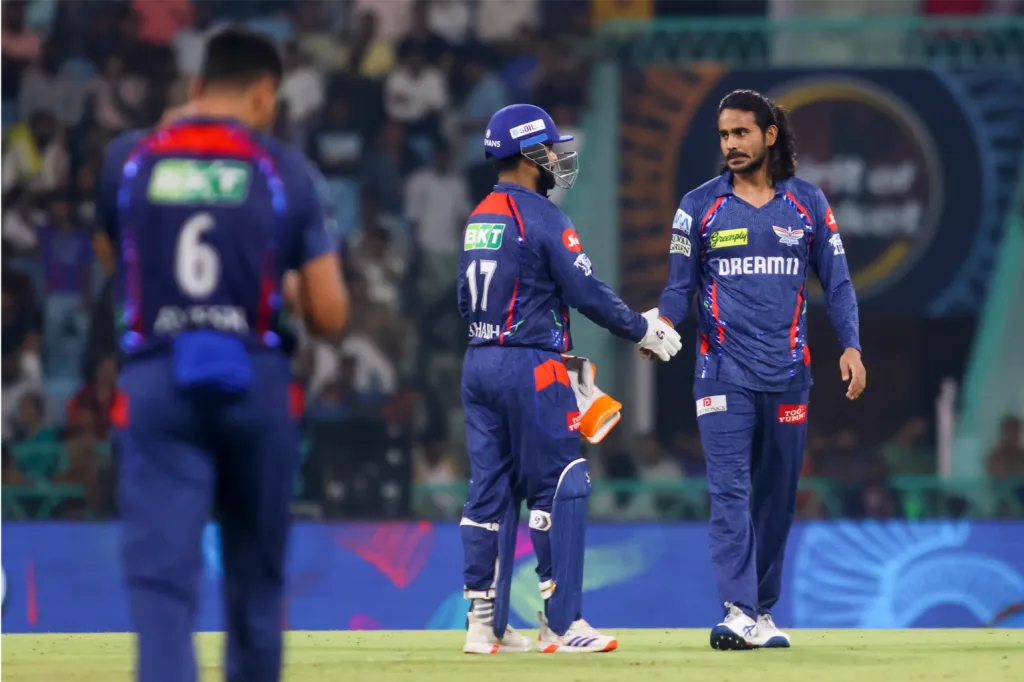Ravichandran Ashwin has expressed strong disapproval of Rishabh Pant's decision to withdraw a run-out appeal against the Royal Challengers Bengaluru's stand-in captain, Jitesh Sharma. This incident occurred during a highly charged moment in their match on Tuesday in the Indian Premier League.
In the 17th over of the game, while Royal Challengers Bengaluru was pursuing a challenging target, Digvesh Rathi of the Lucknow Super Giants successfully removed the bails after noticing that Jitesh Sharma had strayed out of his crease at the non-striker’s end. Despite the fact that Sharma had indeed left the crease before the bowler completed his delivery stride, the ruling favored him, thus deeming him not out.
The scenario took an unusual turn when Pant opted to withdraw the appeal after the incident. Following this gesture, Sharma shared an embrace with the wicketkeeper-batter. Ultimately, Royal Challengers Bengaluru emerged victorious in the match by six wickets.
Ashwin, a steadfast advocate of the "Mankading" rule, articulated that Pant should have been more supportive of his bowler. He emphasized the technical details of the incident during a discussion on his YouTube channel. In Ashwin's analysis, Jitesh's standing outside the crease prior to the bowler completing his delivery stride justified an out decision. Given the circumstances, he believes the bowler acted correctly.
In recounting the events, Ashwin pointed out that even after the stump was broken, the on-field umpire, Michael Gough, did not query Rathi's certainty regarding the appeal but simply asked him if he wanted to appeal. Following Rathi's affirmation, Gough referred the matter to the third umpire, who ultimately ruled that the batsman was indeed in his crease, leading to the decision of not out.
While elaborating on the incident, Ashwin made it clear that he disapproved of Pant withdrawing the appeal. He stated that until that moment, the situation was proceeding as expected in a regular match. However, he became critical of the narrative that developed around Pant's decision, which some commentators labeled an act of remarkable sportsmanship. Ashwin urged a reevaluation of this perspective, underscoring the complexities surrounding the captain's role in supporting his team members.
Asserting the significance of a captain's responsibilities, Ashwin suggested that they should prioritize their players' confidence and morale. He questioned why a captain would choose to let their bowler down in such a glaring manner, especially when faced with scrutiny from millions of viewers. The expectations on a captain are to shield their players from public ridicule rather than exacerbate their sense of humiliation on such a vast platform.
Ashwin extended his critique further, speculating on whether prior discussions about the Mankading rule had taken place within the teams. He highlighted the possibility that Rathi could become the target of public criticism for simply adhering to the rules of the game, which could have lasting impacts on the young bowler's mindset. He urged the cricket fraternity to think critically about the implications of these public statements and actions.
He continued by questioning why only bowlers faced disparagement for such actions. The stigma attached to Mankading can deter bowlers from executing a legitimate dismissal simply because of the societal and media pressures they face. Ashwin argued for a more supportive community that values bowlers rather than subjecting them to ridicule.
In his impassioned plea, Ashwin stated that the sport should encourage fairness without undermining the capabilities of any player. He urged against allowing the lack of empathy towards bowlers to create an imbalance that could ultimately deter them from performing in the future. Rather than fostering a culture that penalizes players for adhering to the rules, cricket should recognize their right to uphold the game's integrity.
Ultimately, Ashwin's observations reflect a broader conversation regarding the dynamics of cricket and player support. His views serve as a reminder of the essential balance between sportsmanship and adherence to the rules, calling for greater understanding and respect towards all players, irrespective of their roles on the field. The cricket community must work together to nurture an environment in which every player, including bowlers, can thrive without fear of judgment or humiliation.

